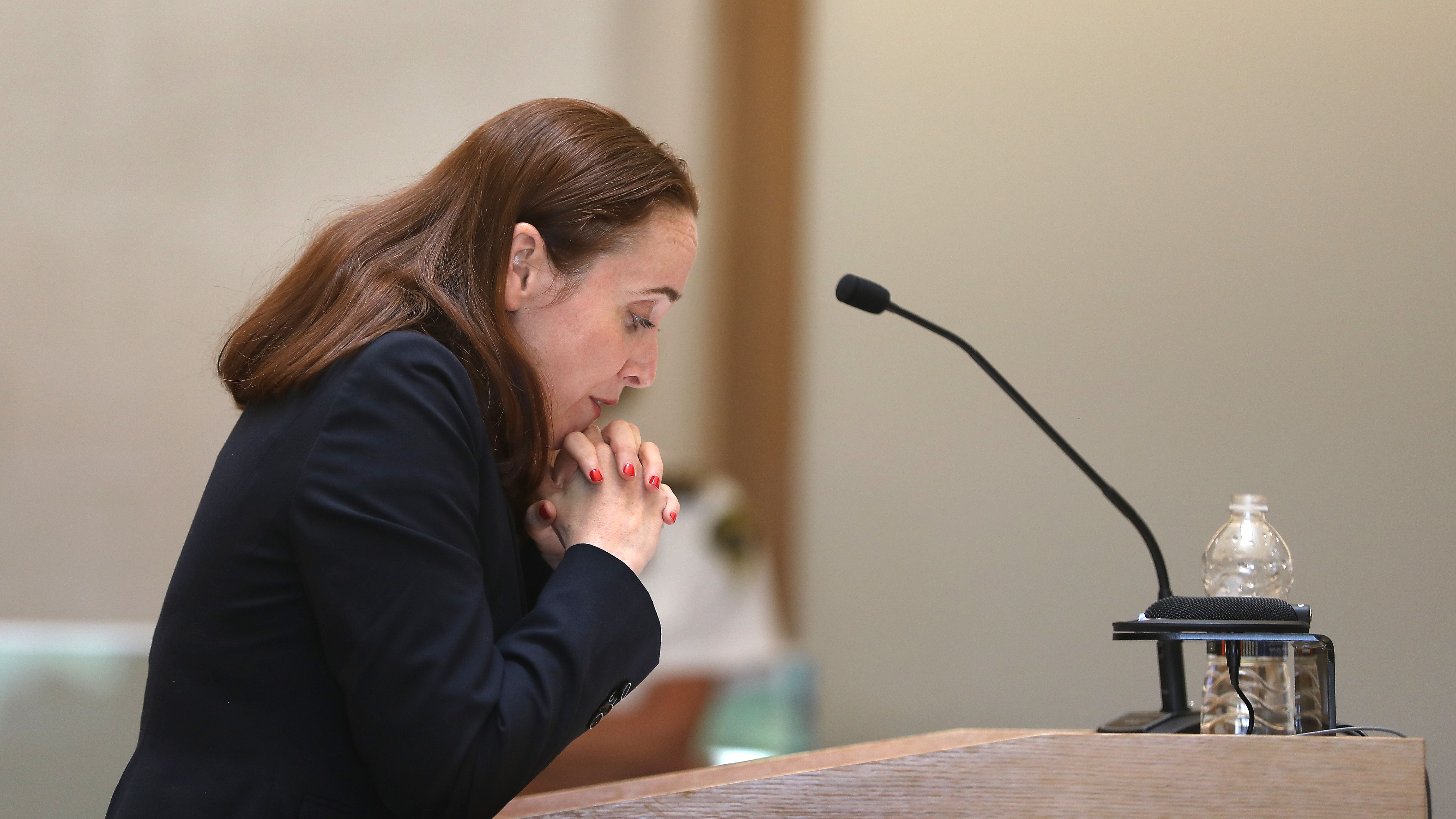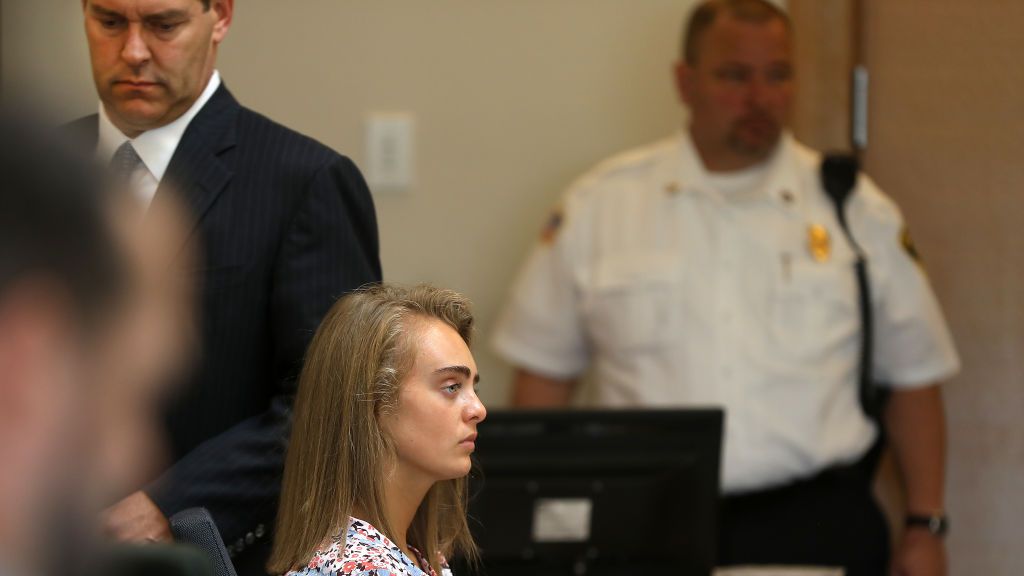Katie Rayburn, the 'I Love You, Now Die' District Attorney, Cuts a Formidable Figure
It's hard to forget Rayburn's impassioned arguments.

By the time she tried her most high-profile case yet, Katie Rayburn, the district attorney shown prosecuting Michelle Carter's case in the HBO documentary I Love You, Now Die, had tried 14 murder trials—and won 13 of them. The now-district court judge's legal chops are on show in I Love You, Now Die, in which Rayburn skillfully argues that Carter, through text and phone conversations, caused the death of 18-year-old Conrad Roy III.
CONTENT WARNING: The below story contains descriptions of a case involving death by suicide. This content may be triggering for some readers.
The 2017 case, which gripped both the state of Massachusetts and a good portion of the American public, has been given the documentary treatment by Erin Lee Carr, the acclaimed director and producer of At the Heart of Gold: Inside the USA Gymnastics Scandal. Snippets of footage of Carter's trial are used throughout the documentary, with Rayburn often shown using Carter's texts to and about Roy to argue her point.
In part two of Carr's documentary, for example, Rayburn is shown cross-examining Carter's psychiatrist Dr. Peter Breggin. It's a riveting look at a skilled prosecutor going head-to-head with a defense witness. "[Michelle] says, 'Ha ha yeah, but I don't know, he's in a bad place right now,' talking about Conrad, correct?" says Rayburn. "He's dead, sir, at that point! Did you factor that into your opinion, then? The fact that she knows he's dead and she's saying 'Ha ha, I don't know, he's in a bad place right now'?...She's telling one person one thing and other people other things. Correct?"
Throughout her case, Rayburn stuck to one key argument: That Carter's actions—encouraging Roy to kill himself for days, weeks, and months, as well as at the time of his death by suicide—made her criminally guilty of Roy's death, whether she was physically present at the time or not. "The phones that we have now allow you to be virtually present with somebody," the then-assistant DA told the court. "She was in his ear, she was in his mind, she was on the phone, and she was telling him to get back in the car even though she knew he was going to die."
Ultimately, Rayburn won her case on August 3, 2017, with Michelle Carter being found guilty of involuntary manslaughter. (For an array of legal reasons, Carter began serving her actual sentence in February of this year.) With her victory, she made legal precedent—the precedent that texts and phone calls can cause the death of another person, even if the perpetrator isn't physically with the victim at the time.

Later that August, Rayburn was nominated by Gov. Charley Baker for a district court judgeship, and was confirmed by unanimous vote that October.
Get exclusive access to fashion and beauty trends, hot-off-the-press celebrity news, and more.
Rayburn insisted, however, that there were no winners when it came to her handling of the Carter trial. "Although we are very pleased with the verdict, in reality, there are no winners here today," she noted in a press conference following the ruling. "Conrad, an 18-year-old boy, is dead and a young woman is now convicted of causing his death. Two families have been torn apart and will be affected by this for years to come."
The high-profile nature of the trial came with its own risks to Rayburn. Along with a number of public officials, Rayburn was openly threatened with death in a letter from 25-year-old Daniel Frisiello. (Frisiello, who has developmental disabilities, was sentenced to probation.)
If you are thinking about suicide, are worried about a friend or loved one, or would like emotional support, the Lifeline network is available 24/7 across the United States at 1-800-273-8255.
Dedicated to women of power, purpose, and style, Marie Claire is committed to celebrating the richness and scope of women's lives. Reaching millions of women every month, Marie Claire is an internationally recognized destination for celebrity news, fashion trends, beauty recommendations, and renowned investigative packages.
